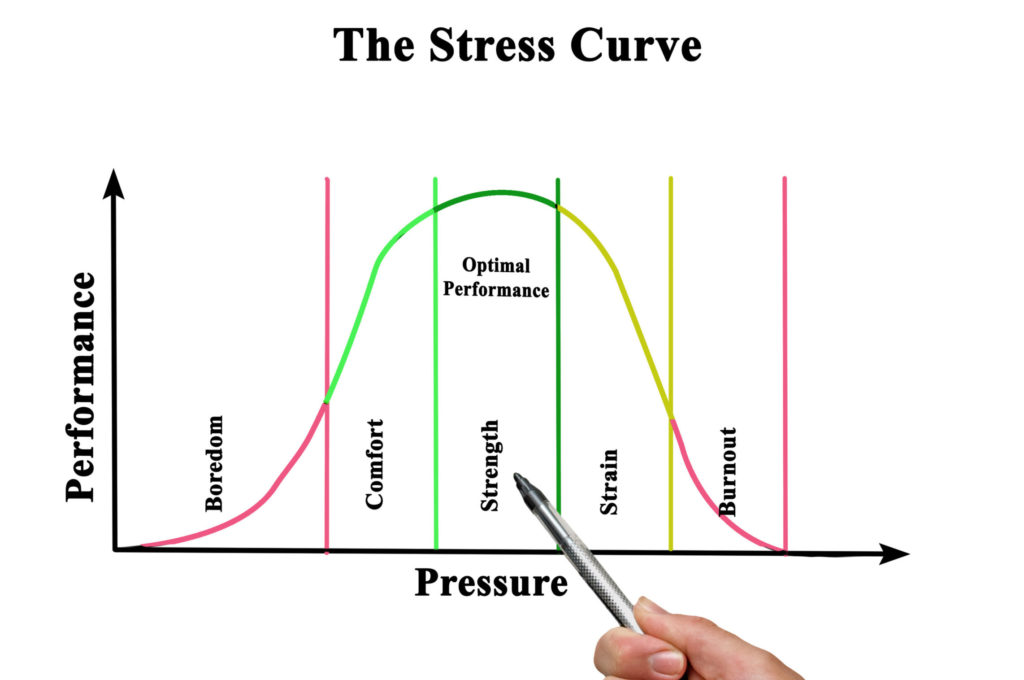Imagine you are holding an elastic band between your left and right hands. The more you pull, the longer the band gets. True? It’s only true for the first few % of stretch, then it gets harder to make the rubber band stretch longer. And, if you pull really hard, the rubber band will snap.
It’s the same at work. The idea that – the harder you try, the better results you get – is only partly true. At some point – especially when the stress levels are high, for prolonged periods, and are not dealt with effectively – teachers begin to reach their breaking point.

We all have different ways of coping with the stress of working beyond our ordinary limits, beyond the ‘Comfort Zone’ as depicted below. We have our checklist of: a full body massage, hiking, long walks under trees, time with family and friends, good food, (some of the suggestions I have received). Most of all we need the time, resources and permission to take care of ourselves.
The key is permission. We need our own permission, and we need permission from the school admin.
When teachers begin to feel Strain (see Stress Response Curve diagram) they ask for what they need. Requests from teachers include: reduce the workload, stop micromanaging, give me day off work (to prepare in peace or simply relax without feeling guilty), give me better pay (to enjoy weekends and holidays), support my teaching choices in the classroom… All of these requests are signs that the teacher is in distress and headed towards Burnout.
Tell-tale Signs
School leaders may see staff exhibiting some of these outward tell-tale signs.
NOTE These signs only apply to CHANGES in the teacher’s normal behaviour.
Calibrate your observations against the teacher’s behaviour in other non-stressful situations. The signs below are indications that your attention may be needed.
Accumulate your observations over time, and refrain from jumping to conclusions too quickly. If your intuition tells you there is a need for more attention, build the relationship first.
Signs to keep an eye open for:
- Depression or anxiety. Head turned down, face turned away. Slower than normal speech or faster than normal speech with a ‘negative’ tone
- Anger, irritability, or restlessness. Overreact to being asked questions (taken as criticism). Suggestions batted aside with little consideration. Problems repeated, elaborated or generalised. Can’t sit still in meetings, need to stand up, or get up and move
- Feeling overwhelmed, unmotivated, or unfocused. Small additional work or unexpected changes in plans result in them ‘giving up’.
- Difficult to get started on ‘boring’ tasks (time wasted). Easily, readily, distracted from current task (avoidance)
- Trouble sleeping or sleeping too much. Dark rings around eyes, excessive coffee drinking. Arriving late to work.
- Racing thoughts or constant worry. Sees problems before they (ever) occur. Escalates small problems into huge issues.
- Problems with memory or concentration. Forgets to do things. Fails promises
- Making bad decisions. Clamping down on students who interrupt in lessons. Offering yes/no choices.


